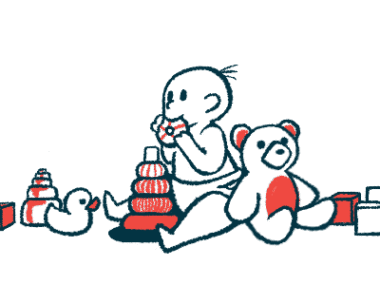Epidiolex May Interact With Diacomit But With Depacon Seems OK, Small Trial Finds
Written by |

Use of cannabidiol-based Epidiolex with two anti-epileptic treatments do not appear to raise major safety concerns, with a small rise in blood concentrations of Diacomit (stiripentol) and no changes of clinical importance with Depacon (sodium valproate) seen overall in patients with seizures caused by conditions such as Dravet syndrome, a Phase 2 study reported.
But individual responses were also seen to vary, and people using Diacomit with Epidiolex should be monitored for adverse effects, its investigators recommended.
The study, “A Phase II Randomized Trial to Explore the Potential for Pharmacokinetic Drug-Drug Interactions with Stiripentol or Valproate when Combined with Cannabidiol in Patients with Epilepsy,” was published in the journal CNS Drugs.
Anti-epileptic therapies such as Depacon (marketed by AbbVie) and Onfi (clobazam, marketed by Lundbeck) are first-line medications used to control epilepsy in people with Dravet syndrome. Diacomit (sold by Biocodex) is an add-on therapy if seizures are not adequately controlled.
Epidiolex, an oral cannabidiol solution developed by GW Pharmaceuticals, was recently approved to treat epilepsy in people with Dravet syndrome as well as those with seizures caused by Lennox-Gastaut syndrome.
As anti-epileptic medicines and Epidiolex may be used at the same time, it is important to investigate possible interactions between them — drug-to-drug interactions are when one medicine changes the efficacy or safety profile of another.
Researchers at the University of Gothenburg in Sweden, along with scientists from GW, designed a Phase 2 clinical trial (NCT02607891) to evaluate how Epidiolex affects Depacon or Diacomit, as well as the safety and tolerability of Epidiolex in patients using these anti-epileptic medicines.
The trial enrolled patients ages 16–55 on Depacon or Diacomit but no other anti-epileptic medicines. Participants must had experienced at least one seizure of any type within two months prior.
Patients were split into two groups, based on whether they took Depacon or Diacomit, and then randomized to either oral Epidiolex (20 mg/kg/day) or a placebo. At study’s end, 10 people in the Depacon arm were given Epidiolex and two a placebo, and 14 patients in the Diacomit arm were given Epidiolex and four a placebo.
All received a first dose of Epidiolex, or placebo, two days after taking their anti-epileptic medicines. A 10-day dose-escalation period was followed by a 14-day maintenance period, after which they were invited to enter an open-label extension (OLE) study. For those who did not participate in the OLE, the dose was reduced over 10 days; they then returned to the clinic for follow-up.
Blood samples were collected on day one (anti-epileptic medicines alone), and again just before Epidiolex dosing, followed by several samples collected between 15 minutes up and 12 hours later.
In the Depacon group, the maximum blood concentrations were slightly lower (13%) in the presence of Epidiolex compared to those taking Depacon alone. There was no apparent difference in the blood concentrations over time between these two groups. Levels of a Depacon metabolite called 4-ene-VPA were also lower in those receiving either Epidiolex or placebo.
Adverse effects were more common in those taking both Depacon and Epidiolex (88%) compared to Depacon alone (25%). Mild diarrhea was the most reported side effect.
In contrast, blood concentrations of Diacomit were slightly higher (17%) in the presence of Epidiolex, and in concentration measurements over time (30%) compared with Diacomit alone. These increases were not seen, however, in all patients in this study arm.
Eight people (57%) in the Diacomit plus Epidiolex group experienced an adverse event, most often mild diarrhea and fatigue.
There were no additional findings in other laboratory tests, vital signs, or tests for therapy-related liver damage. Suicidal behavior or potential substance abuse were also not evident in any patients.
“The safety results from this trial in patients with epilepsy are broadly consistent with the known safety profile of cannabidiol at a dose of 20 mg/kg/day in patients with DS [Dravet syndrome] or LGS [Lennox-Gastaut syndrome],” the researchers wrote.
Treatment effectiveness was not a study aim. But among those given Epidiolex, five patients in each group — Depacon or Diacomit — had fewer seizures than were recorded at the study’s start. Two on Depacon alone also had fewer seizures compared with baseline measure; data were not available for the Diacomit-only group.
“Coadministration of [Epidiolex] in patients with epilepsy led to a small increase in exposure to [Diacomit],” they concluded. “Patients receiving [Epidiolex] and [Diacomit] should be monitored for adverse drug reactions as responses of individual patients may vary.”





